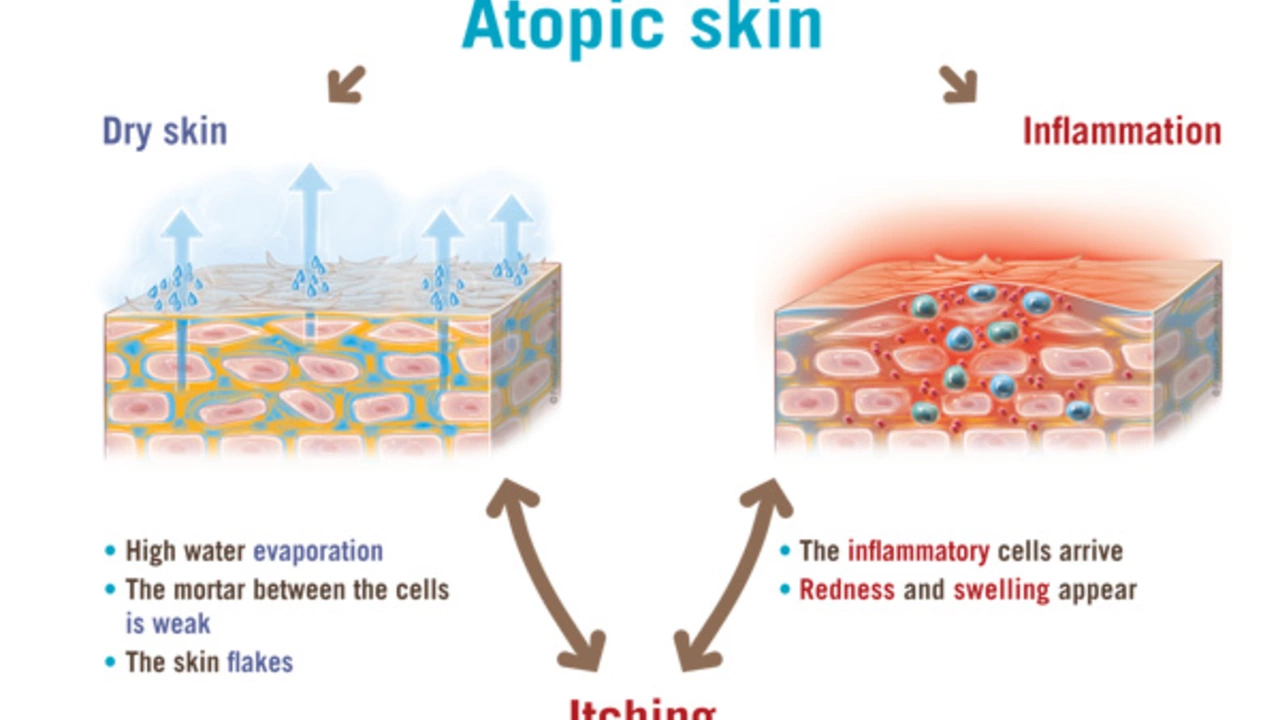Understanding Skin Inflammation
Before we delve into the impact of environmental factors on skin inflammation, it's important to understand what skin inflammation actually is. Inflammation is the body's natural response to injury or infection, which can manifest as redness, swelling, heat, or pain. When it comes to the skin, inflammation can be seen in conditions such as acne, rosacea, psoriasis, and eczema. These conditions are often influenced by numerous factors, including our environment.
The Role of Sun Exposure
One of the most significant environmental factors affecting skin inflammation is sun exposure. The ultraviolet (UV) rays emitted by the sun can cause damage to the skin cells, leading to inflammation. This can exacerbate existing skin conditions or even lead to the development of new ones. A prime example is the sunburn, which is essentially skin inflammation caused by overexposure to UV rays. Over time, repeated exposure can lead to more serious conditions such as skin cancer.
Effects of Air Pollution
Another key environmental factor is air pollution. Air pollutants can penetrate the skin and cause inflammation. They can also disrupt the skin's natural barrier, making it more susceptible to other irritants. Studies have shown a correlation between high levels of air pollution and increased incidences of skin conditions like eczema and hives. Living in highly polluted areas can certainly take a toll on your skin health.
Climate and Weather Impacts
Climate and weather conditions can also greatly influence skin inflammation. Extreme temperatures, be it hot or cold, can cause the skin to become inflamed. Dry climates can lead to dehydrated skin, which can trigger inflammation, while humid climates can increase sweat and oil production, leading to conditions like acne. Changes in weather can also disrupt the skin's balance, causing it to become more sensitive and prone to inflammation.
Environmental Allergens
Allergens in the environment can also cause skin inflammation. These can include pollen, dust mites, mold, and dander. For people who are allergic, exposure to these allergens can trigger an immune response, leading to inflammation of the skin. This can manifest as rashes, hives, or even eczema.
The Impact of Hard Water
Hard water is another environmental factor that can impact skin health. Hard water contains high levels of minerals like calcium and magnesium, which can disrupt the skin's natural pH balance and cause inflammation. It can also leave a residue on the skin, which can clog pores and lead to conditions like acne.
How Stress Influences Skin Inflammation
While not a physical environmental factor, it's worth noting that stress can also contribute to skin inflammation. High levels of stress can trigger hormonal changes in the body, which can in turn affect the skin. It can cause the body to produce more oil, leading to acne, or cause the skin to become more sensitive, leading to inflammation.
Environmental Adjustments for Healthier Skin
Understanding the impact of environmental factors on skin inflammation is the first step to healthier skin. By making adjustments in our lifestyle and environment, we can reduce the risk of skin inflammation. This can include wearing sunscreen, cleaning air filters regularly, using a humidifier in dry climates, and managing stress levels.
Professional Treatments for Skin Inflammation
While environmental adjustments can help, there are also professional treatments available for skin inflammation. These can include topical treatments, oral medications, or even laser treatments, depending on the severity and type of skin condition. Consultation with a dermatologist is the best way to determine the most appropriate treatment for your skin.
Conclusion: The Interplay of Environment and Skin Health
In conclusion, our environment plays a significant role in skin health. While we can't control all environmental factors, understanding their impact can help us make informed decisions to better manage skin inflammation. With the right preventative measures and treatments, it's possible to maintain healthy, inflammation-free skin, even in challenging environmental conditions.



Eileen Choudhury
July 22, 2023 AT 18:41Dade Hughston
July 24, 2023 AT 06:47S Love
July 26, 2023 AT 02:48Alexa Apeli
July 27, 2023 AT 20:20Katie Ring
July 29, 2023 AT 06:48Pritesh Mehta
July 29, 2023 AT 13:25Keerthi Kumar
July 30, 2023 AT 06:18Billy Tiger
August 1, 2023 AT 00:41Jim Peddle
August 2, 2023 AT 12:39